Judicial Branch
 The Judicial Branch is a system of institutions which interpret the law and administer justice. Courts in India form a hierarchical structure of three broad levels: the Supreme Court of India, the High Courts, and the District Courts. Their role is to pass judgements and make decisions about any legal disputes brought before them.
The Judicial Branch is a system of institutions which interpret the law and administer justice. Courts in India form a hierarchical structure of three broad levels: the Supreme Court of India, the High Courts, and the District Courts. Their role is to pass judgements and make decisions about any legal disputes brought before them.
Judges of the High Court and Supreme Court are appointed by the President of India, on the recommendation of the National Judicial Appointments Commission (NJAC). The NJAC comprises of the Chief Justice of India, two other senior Judges of the Supreme Court, the Union Minister of Law and Justice, and two eminent persons who are nominated by a committee which includes the Prime Minister, Chief Justice, and the leader of Opposition of the Lok Sabha. Parliament regulates the procedure for the appointment of the Chief Justice.
Judges remain in office until the age of 65. A Judge may be removed from office if there is proven misbehaviour or incapacity. The impeachment process is initiated by either the Lok Sabha or the Rajya Sabha. It involves constituting an inquiry committee, which will allow the matter to be brought to vote if it finds merit in the allegations. Two-thirds of both Houses of Parliament must pass the motion for a Judge to be impeached. The President must then pass the order for the Judge to be removed. This system of appointment of Judges, as well as the difficult procedure to impeach a Judge is intended to maintain the independence of the Judiciary.
District Courts and subordinate courts are established by the state government for every district in the state. There are civil courts, criminal courts, courts to handle family matters, as well as several subordinate courts, which work under the relevant District Court. District Courts are under the administrative and judicial control of their respective High Courts, and District Court judgements may be appealed to the High Court. District Court judges are appointed by the Governor of the State in consultation with the High Court, through a process which includes an examination and interview.
The Constitution enumerates the powers and role of these courts in Chapter VI – Subordinate Courts.
The High Court consists of a Chief Justice and other Judges. Every state in India has a High Court, and some states have a common High Court. Most of the Union Territories in India are under the jurisdiction of the High Court of a nearby state; only Delhi has its own High Court. The High Court has superintendence powers over all the district courts and subordinate courts in its territory.
Cases which come to the High Court may be appeals from decisions of district Courts (appellate jurisdiction) or cases which come directly to the Court (original jurisdiction). Cases which come directly to the Court may be civil or criminal suits or seek the enforcement of fundamental rights. It has various powers, including those relating to reference, appeal, revision, and transfer of cases, prevention of the abuse of the process of any subordinate court, or securing the ends of justice. High Courts also have the power to issue writs and to enforce any fundamental rights contained in the Constitution. Writs are any orders passed by a Court which instruct one to take action or cease action. Judgements passed by the High Court can be appealed in the Supreme Court of India. All decisions of the High Court are binding on the lower courts of the State in which the High Court has jurisdiction. The powers and functions of the High Court are contained in Chapter V of the Constitution of India.
The Supreme Court is the highest court in India. It consists of a Chief Justice and, currently, not more than 30 other Judges. This number may be changed by the Parliament through law.
The Supreme Court has wide-ranging powers and original jurisdiction in any dispute involving the Government of India and any of the states. In such a dispute, the case would come directly to the Supreme Court.
The Supreme Court also has appellate jurisdiction, which means that appeals against any civil, criminal, or other proceedings of any judgement or decree of any High Court come to the Supreme Court. The Supreme Court may also grant “special leave to appeal” from any judgement, sentence or order in any matter made by any court or tribunal in India. Similar to the High Courts, the Supreme Court also has the power to issue writs and enforce any fundamental right. Advisory powers also lie with the Supreme Court, and the President may refer any question of law or fact which is of public importance to the Court
The Supreme Court has overarching powers; it may pass any order or decree it considers necessary for doing complete justice in any matter before it. Law declared by the Supreme Court is binding on all Courts within India, and any decree passed by it is enforceable throughout India.
The role, powers, and functions of the Supreme Court are enumerated in “Chapter IV – The Union Judiciary” in the Constitution of India.
